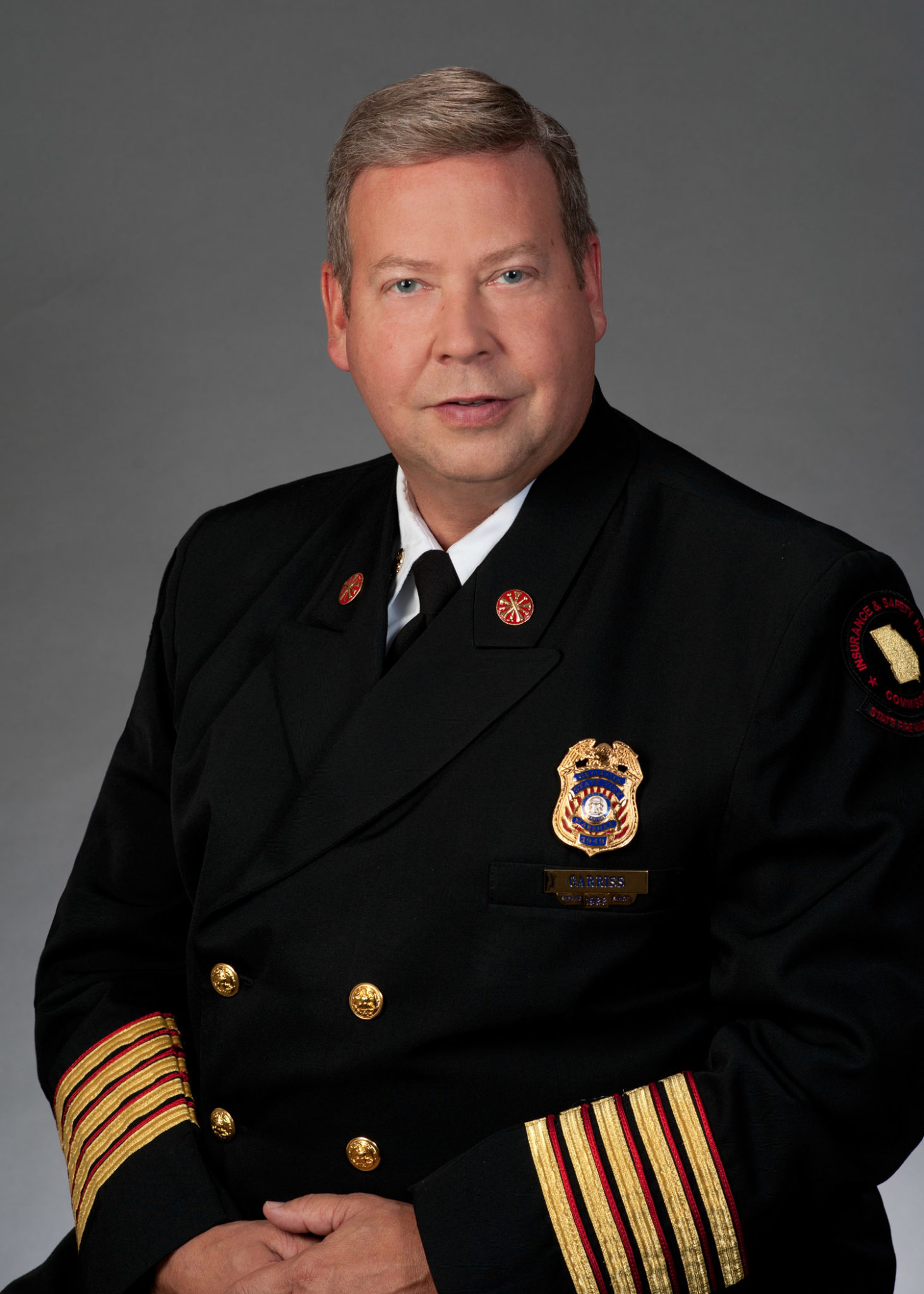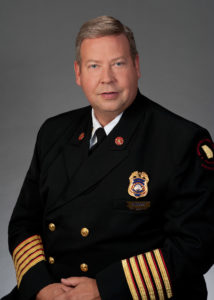
 We recently had the pleasure of sitting down with Georgia State Fire Marshal, Dwayne Garriss, to learn more about him and what’s been going on in the Office of Insurance and Safety Fire Commissioner.
We recently had the pleasure of sitting down with Georgia State Fire Marshal, Dwayne Garriss, to learn more about him and what’s been going on in the Office of Insurance and Safety Fire Commissioner.
Dwayne earned his Bachelors of Architecture from the University of Tennessee and has been with the Georgia Office of the Insurance and Safety Fire Commissioner for 25 years. He has served as a Senior Fire Safety Engineer, Director of Engineering, and Assistant State Fire Marshal for 18 years, overseeing the Engineering and Inspection Division and licensing of fire suppression contractors, inspectors, and special hazard system technicians. He was appointed as the Georgia State Fire Marshal in 2011.
Dwayne is very active in several professional associations, including the State Codes Advisory Committee for the Department of Community Affairs, the Georgia Firefighter Standards and Training Council, Georgia Association of Fire Chiefs, Georgia State Firefighters Association, National Association of State Fire Marshals, National Fire Protection Association, and the Society of Fire Protection Engineers. He also serves on the Board of Trustees for the Firefighters Pension Fund and has begun serving his 2nd three-year term on the International Code Council (ICC) Board of Directors. He plans to run for the position of Secretary Treasurer, an Executive Board seat, this fall.
Serving on the Board of Directors for the ICC is not a paid position. Dwayne volunteers his time to this organization, as well as the other organizations, in order to make a difference in the building construction and fire safety communities. He firmly believes that through the principle of the 3E’s: engineering, education, and enforcement, code officials have the best chance to regulate building construction and provide a safer building environment for the residents and visitors of the state of Georgia.
What is the History of the Georgia Fire Code?
The foundation of the Georgia Safety Fire Law and the State Fire Marshal’s office is based on Harry Truman’s Fire Prevention Conference, which occurred shortly after the Winecoff Hotel fire in 1946. The Winecoff Hotel opened in 1913 in the city of Atlanta and was advertised as an “absolutely fireproof” building. But, the term fireproof was an insurance term that only meant that the building would not collapse under fire; it did not apply to the building contents. In addition, the hotel had no fire doors, no sprinklers, no fire escapes, and only one stairway to service all fifteen floors.
A fire started at the Winecoff Hotel in the early morning of December 7, 1946. It is believed to have started on the third floor. The cause of the fire has been debated throughout the years with some saying that it began accidentally by a dropped cigarette and others saying it was arson. In any event, once the fire ignited, both fire and smoke quickly filled the hotel. The single stairway acted similar to a chimney, allowing smoke to flow straight up through the middle of the building. As the smoke layer reached each floor, it spread outward, filling the hallways and guest rooms.
With 119 lives lost, the Winecoff fire remains the deadliest hotel fire in the history of the US, and had the 3rd most lives lost during a fire incident at the time of Truman’s Fire Prevention Conference. The fire and Truman’s Conference changed the way the fire code was viewed and implemented all over the United States, and Georgia was certainly no exception. When Dwayne was appointed into the position of State Fire Marshal, he went back and reviewed the Fire Prevention Conference report, which addressed five major issues: building construction, laws and enforcement, fire prevention and education, research, and firefighting services.
When we met with Dwayne, he stressed how there are still issues today that deal with the same problems – mostly with adopting current codes, enforcement ability, and education. A lot of the issues he sees today stem from funding. It’s difficult to get funding when you have a hard time measuring the success of something that hasn’t occurred. When a fire doesn’t happen, it can be hard to prove that it would have happened anyway. As fire protection engineers, we see this issue all the time. We have an industry-wide problem of proving that positive things are being done. We can contrast that with something like the HVAC engineering side of it. If your HVAC system doesn’t cool the building, then you know it didn’t work. If there isn’t a fire, then it can be difficult to prove whether your systems or codes in place have had an impact.
In our next post, we’ll talk to Dwayne about Georgia’s recent move to the 2012 Life Safety Code, as well as some of the differences you can expect to see as a result of the code adoption.

